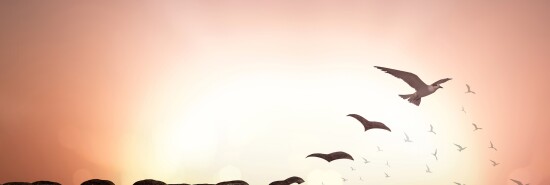
True forgiveness
Rob Long
Maybe you remember this: On Jan. 11, the Federal Aviation Administration halted all flights across the country for two hours. There was a computer glitch in the Notice to Air Missions systems, what the FAA calls NOTAMs, which monitor and distribute safety information to pilots and ground crew throughout the air traffic system, and if you ask me, I feel like I did a pretty good job pretending to know what I’m talking about.
For the record, I don’t know what I’m talking about, but that’s not really the point here. There are dozens of weasel words to describe what happened on Jan. 11 — a “systems error,” a “software outage,” a “database failure,” that sort of thing — but we now know what really happened.
Someone deleted some files by mistake and took the entire system down. Some person, someone with a name and a face and a haircut and probably a favorite Starbucks order, hit a computer key by mistake and suddenly felt that sick feeling we’ve all felt at least once, a combination of panic and nausea. Oh dear God, this cannot be happening. This is not happening.
But it was happening, of course, and I can imagine a lot of frantic keystrokes and some desperate bargaining with the almighty as the magnitude of the error set in. And then, as the panic subsided, there was probably this perfectly natural, perfectly human reaction: Who can I pin this on?
I imagine the scene this way: Our hero — and let’s call him that, OK? The guy’s been through enough — realizes what he’s done at roughly the same moment that his co-workers in the adjoining workstations discover it, too. His eyes dart back and forth, maybe his head starts jerking left and right, and every one of his co-workers knows what’s up. He’s looking for someone to pin this on, they say to themselves, because they know that is exactly what they’d be doing in the same situation.
So they do the natural and human thing and begin to isolate their colleague slowly. Those closest to him will begin to scoot away in their desk chairs. Those by the door will vanish silently into the hallway. Everyone else will suddenly become absorbed in the Keurig, the fire code safety information pinned to the wall, the screw top of their Swell water containers.
What happens next is a fast-motion blur. An alarm of some kind is issued, the authorities become involved, planes are halted on the runway and stuck on the tarmac, and thousands and thousands of passengers become one unified infuriated mob. There is shouting at the gates, there are rage incidents in airplane cabins, there are frantic I’m gonna be late texts and bitter, snaking lines leading to the customer service counters in each of the 5,217 airports in the United States.
And there’s one guy, in a computer room somewhere, who wants to somehow crawl up inside himself and disappear.
Look, if you were one of the travelers whose journey was disrupted on Jan. 11, I completely understand that it’s hard for you to forgive the poor soul who SELECT ALL – DELETE’d your travel plans that day. I have a friend who was on his way to a high-profile and very lucrative speaking engagement that morning, and he’s still steamed. But religious leaders and human behavior researchers both agree that one of the keys to happiness is cultivating a sense of forgiveness and learning to let things go. People make mistakes, all people, each of us included, and it’s a healthy practice to see others and their frailty with empathy.
“Even the guy who broke the FAA computer and ruined my day?” asked my friend when I shared this perspective.
“Even that guy,” I said, maybe a little too smugly, because my friend sat back, and suddenly an evil grin spread across his face.
“What about,” he said slowly, “the guy at that lab in Wuhan, China, who was careless with those virus samples and infected the world with COVID?”
I didn’t say anything for a bit.
“I said, what about the guy in that lab in Wuhan who —“
“I heard you the first time,” I said.
“Well?” he asked.
Rob Long is a television writer and producer and the co-founder of Ricochet.com.
